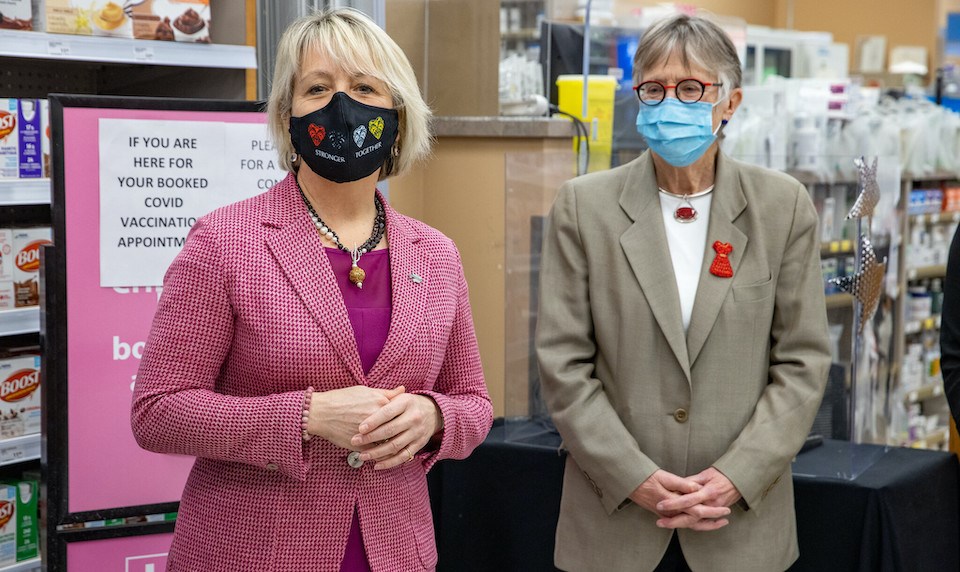B.C.'s top doctor says she wears different face masks depending on the risk of the environment but that properly fitted cloth masks are suitable for most settings.
Provincial Health Officer Dr. Bonnie Henry has come under fire recently for insisting that face masks are only one layer of protection in the fight against COVID-19 transmission and that N95 masks are not necessary for most places.
When asked if she always wears a "well-fitted cloth mask," Henry told reporters in a briefing Tuesday (Jan. 11) afternoon that there are instances where she will opt for a medical mask.
"So I think what we need to recognize is our risk in the risk setting," she said. "And I do wear a three-ply well-fitted cloth mask for most settings that I'm in, particularly where I know there's going to be small numbers of people [and] lots of space ventilation."
If she's in a vaccination clinic or in a healthcare setting, the health officer will wear a medical mask "as appropriate to the setting," she explained. "We look at our risks differently depending on the setting that we're in."
The decision also comes down to "individual risk" and other factors, including how long people will be in a place or if they know who will be there, added Henry.
"So those are all things that we factor into what mask we need for which situation."
In a briefing on Jan. 7, Henry stated that layers of protection, in addition to a "hierarchy of protection," significantly reduce the risk of transmission. Examples of safety protocol include having reduced numbers of people, preventing mixing and mingling, or having students attend class at different times. Additionally, businesses may use screening to prevent the "entrance of a hazard" to infect others.
The Public Health Agency of Canada released some updated information about face masks and layers of protection to prevent the spread of COVID-19 in November 2021. Wearing a face mask that fits comfortably and correctly is most important, underscored Henry. But while non-medical masks are adequate for most people, she noted that others may want to consider wearing medical ones.
Non-medical masks generally can help prevent the spread of COVID-19, but the PHAC notes that medical masks and respirators provide "better protection."
Find more information about the updated guidance on face masks with the Public Health Agency of Canada online.



